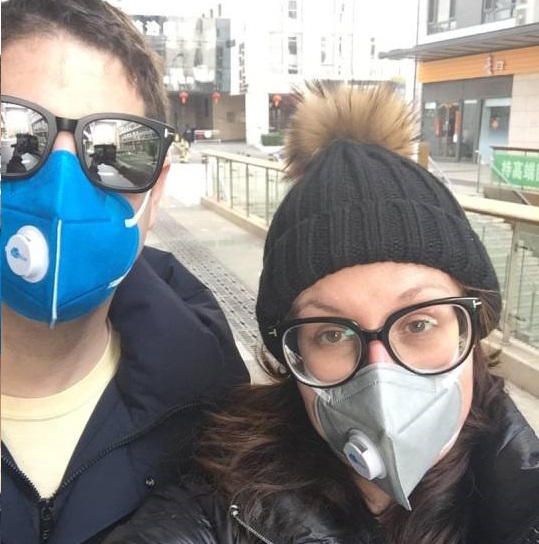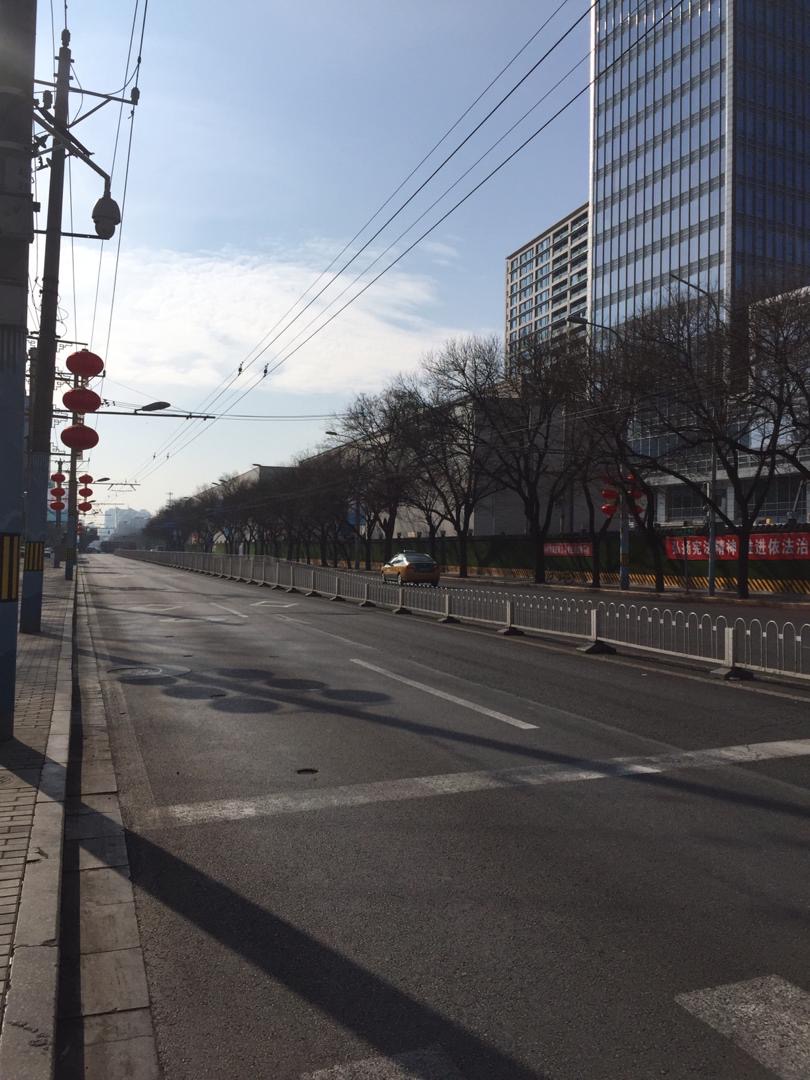Teaching classes online, doing at-home workouts and taking short walks are just some of the ways two Canadians are killing time while living under strict restrictions in China amid the coronavirus outbreak.

Amy Passafiume and her husband Kevin moved to Beijing last summer to work as teachers at a bilingual school. But when they moved, they couldn’t have anticipated a global viral outbreak would shake up their plans.
COVID-19, the disease caused by the new coronavirus, was first detected in China’s Hubei province late last year. In the months since, it has infected more than 90,000 people in over 70 countries and has killed more than 3,100.
Across China, more than 50 million people were placed under strict quarantine as the virus spread. Travel into and out of cities was cut, and schools and businesses were shuttered as health officials scrambled to contain the disease.
In Beijing, Kevin Passafiume said restrictions were imposed around five weeks ago, but that they became more stringent in the last two weeks.

“They put down measures that are a lot like what we would consider quarantine,” he said. “But technically right now we are allowed to leave our building. It’s just become a little bit of a process to do so.”
He said all of the entrances to their apartment building have been closed except one, where a metal detector was placed.
“They’re forcing people to go through one control point, and are checking temperatures and writing down your information,” he said. “So in our case, not just our name, phone number and address, but also our passport numbers.”
He said this information is necessary if they want to go into a grocery store, a bakery or a restaurant.
READ MORE: Coronavirus — Do Canadians really need to stockpile household items?

Get weekly health news
Out in Beijing, Amy said you “don’t see anyone without a mask,” and workers are tirelessly trying to sanitize the city.
“Every morning we hear the sprayers go off in front of our building,” she said. “And we see water trucks almost driving down the street, just spraying disinfectant at times.”
Kevin said while they are trying to stay positive, the situation has been stressful at times.
“I would say it’s been hard for us to maintain a positive attitude and not get frustrated about small things,” he said. “I think we noticed that little things make us more frustrated than usual.”

He said that’s when the pair will do an at-home workout, or take a short walk.
“We try to get a little movement to our bodies and focus on enjoying what we have,” he said.

Ultimately, though, Kevin says they are “very fortunate to have each other.”
“We know that there’s a lot of foreigners, particularly teachers who are single, who are in the country, and I think it’s much harder for them because they don’t have a built-in support system,” he said.
Amy said the pair receive plenty of messages from loved ones back home in Canada who are concerned about their well-being.
“There’s been certain days that we’ve woken up and my phone will have a lot of messages from overnight,” Amy said. “So everyone is checking and maybe they haven’t heard from us for a few days. They want to make sure we’re OK, so we do know that many people are thinking of us and checking in on us.”
Last month, the Canadian government chartered two planes to evacuate Canadian citizens from China.
When asked why they weren’t on one of the flights home, Kevin said the pair had reached out to the Canadian government, but were told the flights were for Canadians in Wuhan — the city believed to be the epicentre of the virus — and not all citizens.

According to Kevin, the couple did consider taking a commercial flight back to Canada, but decided that it would be too difficult to continue working with the time difference.
“So we had opted to stay here,” Kevin said. “I would say that at different points it has become more nerve-wracking for us as we are unsure about what additional measures the government will put in place and what that means for us as foreigners who can’t speak the language.”
He said adding to that anxiety is weeks of silence from the Canadian embassy, calling the lack of communication is “a little bit concerning.”
He said they are fortunate to receive good news from friends and family in Canada and that the information they have been getting from inside China is “fairly decent.”
“Its just unfortunate that our government doesn’t seem to be providing a lot of information to us,” he said.
Kevin said at this point, though, there would need to be a “significant change” in the situation in order to return to Canada.
“It would have to get worse, or our requirements for work would need to change,” he said, adding that their exposure to the virus has been “very limited.”

But the pair aren’t taking unnecessary risks, and are taking extra precautions to ensure they don’t become ill with the virus.
“Masks every time we leave, we wash our hands like crazy and even our re-usable grocery bags — when they come in from the store I just throw them in the washing machine,” Amy said. “Washing our clothes if we’ve gone outside regularly, disinfecting as much as we can, all those good things.”











Comments
Want to discuss? Please read our Commenting Policy first.